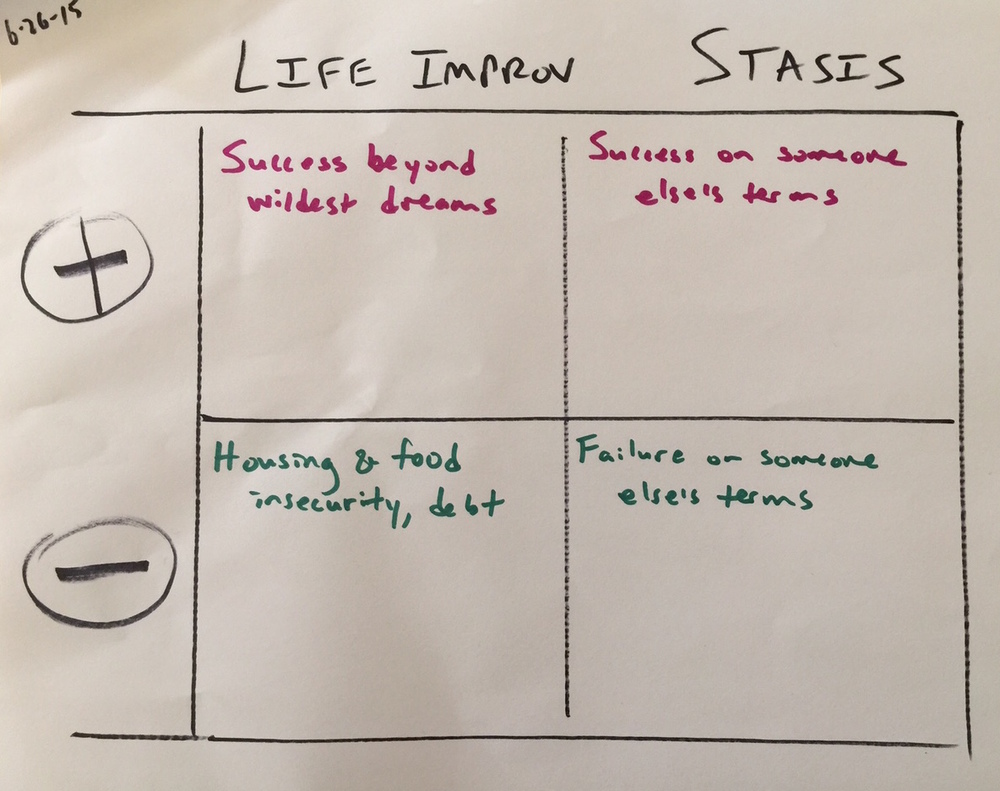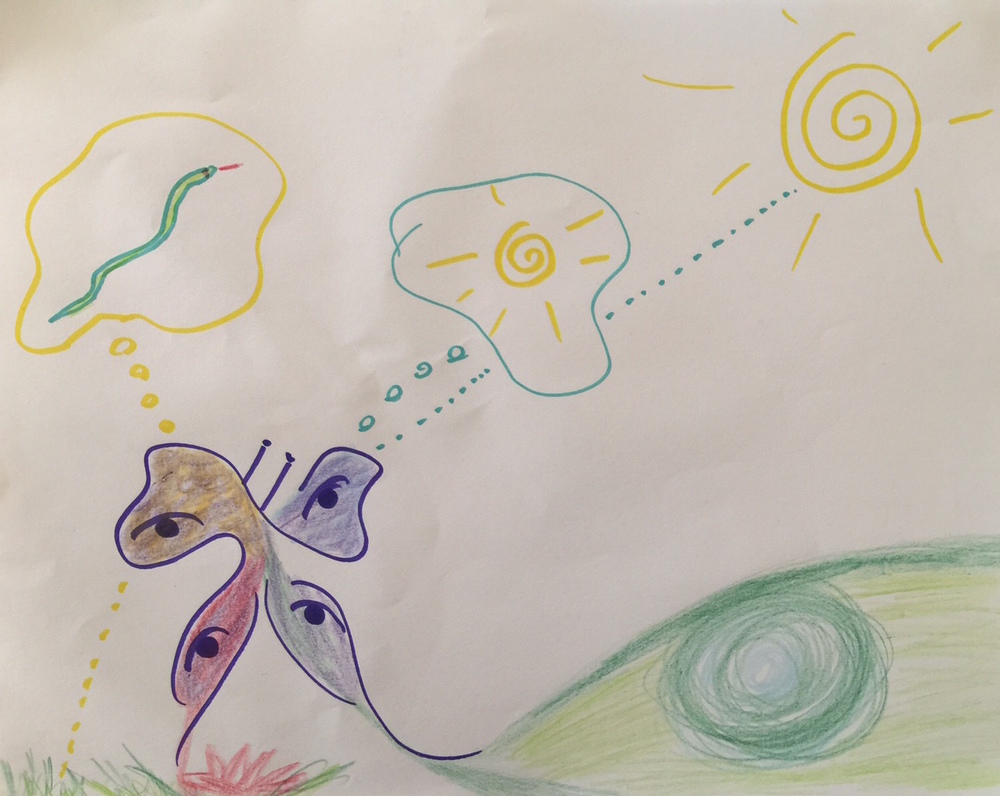We are all doing life improv all the time. Some of us are better at it than others. Most of my friends and family, for example, are better at it than me. So I have to take what can seem like extreme actions to break out of my habits of planning and risk minimization. Some people who make relatively conventional life choices tell me I am brave, but actually they are braver than me. Because as I see it, they are taking much weightier risks.
Lots of people thought I was crazy for leaving a Harvard postdoc to launch my own art business—without even knowing what that would mean in terms of specific products or services (I’m experimenting), or location (I’m traveling). But there’s a rational case for this sort of move. I am actually minimizing the weightier sorts of risk, applying what we know about decentralized information environments to life, and increasing my chances of success with positive selective attention and openness.
Qualitatively Different Risks

If you follow your heart without knowing exactly what comes next, one step after another, trusting that you know your desires and can continue honing them into discrete goals, making specific plans to achieve those goals, trying, learning, adapting, and trying again—doing life improv—in the best case, you will succeed on your own terms, perhaps attaining or exceeding your dearest goals.
Or you could end up homeless, hungry, and in debt.
If instead you stay on a more conventional, well-planned path—in which the next-steps for advancement are clear and set by someone else, as in academia, law, medicine, or someone else’s business—in the worst case, you will succeed on someone else’s terms.
Or you could fail on someone else’s terms.
One course of action or way of seeking success is not better than the other. The risks are not greater or lesser in the two modes of seeking attainment either. They are qualitatively different sorts of risks.
I choose life improv.
Life As Decentralized Information Environment
Decentralized information environments are the most efficient ones that generate the best outcomes for everyone on average in economic (market) and political (democratic) terms. If that logic ap[lies to life, then taking your passion and caring to the marketplace of exchange and ideas should also generate the best outcomes on average for individual people. And if you try to plan how that will happen instead of just showing up to play and care—you may overfulfill the quota, comrade, but the outcome is likely to be suboptimal. Thriving means risking.
To be fair, markets and democracies are the worst forms of economies and governments. Other than every other kind.
One of my favorite examples illustrating the decentralized information environment principle in life improv is the story of how Iman got her first modeling gig while working two jobs and going to school full time. A random photographer spotted her on the way to class. She had never seen a fashion magazine—only Playboy—and told him, I’m not that kind of a girl. He said no, it’s not that kind of magazine, and I’ll pay you. How much? she said. How much do you want? he replied. And so she asked for her school fees—a seemingly exorbitant sum—in exchange for the work. She projected grace and was open to unpredictable magic, and asked for exactly what she wanted. And she got it. Plus a career.
Incidentally, “Iman” means to have faith. So does Vera.
Faith Makes Luck
I’ve written about this before, and I’ll write more on it later, probably in illustrated poem-story form.

Faith in the sun shining draws your eyes to the sky. Fear of snakes, to the ground. Both exist. But where you look determines what you see. What you look for determines what you observe. And then perception shapes action because we’re intelligent, caring creatures. So having faith shapes the selective attention field that shapes the perceptions that shape what action even seems possible. Faith makes luck.
In other words, we all have confirmation bias all the time. It might as well be a goodness bias. Because that bias will actually generate self-fulfilling prophecies, whether it’s faith in evil or faith in good.